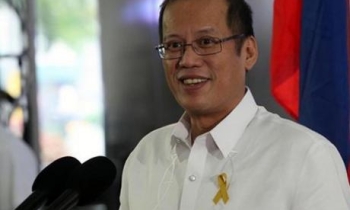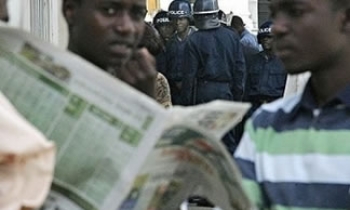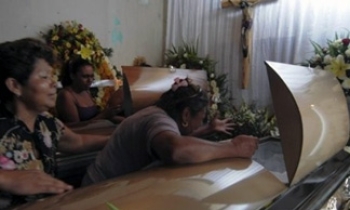The Kazakh government's human rights record, including free speech issues, is inconsistent with standards embraced by the Organization for Security and Cooperation in Europe (OSCE), whose chairmanship the former is to take over in 2010. This, says Human rights Watch, risks undermining the integrity of the institution's human rights principles.
One of the key problem areas is the government's rigid approach towards media, says HRW in a 55-page report 'An Atmosphere of Quiet Repression: Freedom of Religion, Expression and Assembly in Kazakhstan'. The report, released before OSCE Ministerial Council meeting on December 4-5 in Helsinki, scrutinises the Kazakhstan government’s rigid treatment of freedom of expression.
When the OSCE made the decision about the 2010 chairmanship, the Kazakh government had pledged, among other things, to reform a number of restrictive laws pertaining to elections and the media. On November 11, the government sent draft amendments to Parliament, but these appear to consist of relatively minor changes. The text of the draft laws have not yet been made public, but the government summarized them in an announcement on November 11.
"The new draft amendments are a small step forward, but do little to address core problems and offer no path to real change," said Rachel Denber, Europe and Central Asia director at Human Rights Watch. "Moreover, Kazakhstan's human rights record is weak in other areas that need meaningful reform."
Although numerous, media outlets in remain substantially under government control through a variety of direct and indirect means. Of some 2,500 functioning media outlets, a growing proportion are owned outright by the government.
Most Kazakh media organisations are local or regional, but eight television channels, four radio stations and 20 newspapers enjoy national coverage. Among the more influential print publications are the state-owned Kazakhstanskaya Pravda and Yegeman Kazakhstan, whose editors-in-chief are appointed by the government, as well as the popular magazine Karavan and independent newspaper Vremya. National publications have average circulation rates in excess of 100,000 copies. Major television outlets include state-owned Kazakh TV and Eurasia TV, as well as Khabar TV and Kazakh Commercial Television (KTK).
The government consolidated its control over the media when Samgau, a stateowned company, purchased all the remaining privately-held stock in Khabar, once the country’s most important private media group, at an auction on March 21, 2008. Khabar, which controls Karavan, Khabar TV, and another national television station, Caspionet, was previously owned by Rakhat Aliev, the then-husband of Dariga Nazarbaeva, the president’s daughter. It owns the only TV channel that can be seen in all 16 provinces of Kazakhstan.
In 2007 Aliev, who had fallen out of favour with the government, began to criticise the government through his media holdings. Kazakh prosecutors charged Aliev, then serving as his country’s ambassador to the OSCE, with among other things, kidnapping two prominent Kazakh bankers. In March 2008 a Kazakh court sentenced him in absentia to 20 years’ imprisonment for the kidnappings and several other grave crimes, and stripped him of his assets, leaving the company open to the government buyout, and he was later handed another 20-year in absentia sentence for plotting to overthrow the government.
In July 2008 the government’s most important media assets, including Khabar, were combined into a government-created holding company, Arna Media, which would imply either full or informal but effective government control over it. Nongovernmental organisations that monitor the media, such as Adil Soz and MediaNet, therefore interpret this development as a further attempt by the government to ensure no further development of the independent media.
While major radio and TV outlets have long been under the control of the government and websites critical of the government are often blocked by the authorities, print media still have some scope for investigative journalism, criticism of the government, and other manifestations of freedom of expression. The degree of freedom, however, depends on the relationship the newspaper and its editor-in-chief have with the local authorities.
Gulzhan Ergalieva, chief editor of Russian-language independent Svoboda Slova, believes that the question of free speech and the degree of media freedom depend largely on the key figures advising the president. "Mass media is under regular attention and control of the authorities. They have categorised the media and in their relation with each newspaper they proceed according to a certain tactic. For example, is it possible to make a deal with this newspaper? How shall we approach this newspaper, as a whole or its parts?"
In February 2008 an Astana court ordered independent newspaper Law and Justice closed on grounds that it was improperly registered. Tokbergen Abiev, the editor-in-chief, says the court made its decision based on a mix-up between two different companies of the same name. He believes the confusion to be deliberate and politically motivated: Law and Justice had shortly earlier published allegations of corruption among the judiciary. It was the first closure of an independent newspaper in Kazakhstan in more than a year.
Arrests, beatings, and imprisonment of journalists are rare in Kazakhstan. A glaring exception was the brutal beating of Marcus Bensmann, a German independent investigative journalist, on January 20, 2008. Journalists say direct physical attacks by the police, against journalists personally and the physical property of editorial offices have decreased in the past couple of years. “Things are much better now,†says Ergalieva. Two or three years ago there were murders [of journalists], court cases, and beatings. Now the authorities and the police have changed their tactics.â€
In the first half of 2008 the authorities opened seven criminal cases against journalists for alleged defamation; in 2007 the total was 27. Kazis Toguzbaev, a reporter for independent newspaper Azat, was given a two-year suspended sentence in January 2007 for “insulting the honour and dignity†of President Nazarbaev in two articles he published on the website Kub in April/May 2006. Says Toguzbaev, "They warned me that if I write anything else like this that my suspended sentence will automatically be converted into a real one and they’ll add on another new criminal case.… Serving a suspended sentence doesn’t mean you can relax, it means that if there is another criminal case, there is a new sentencing plus the one you haven’t finished. In April 2008, an Almaty district court revoked the verdict.









